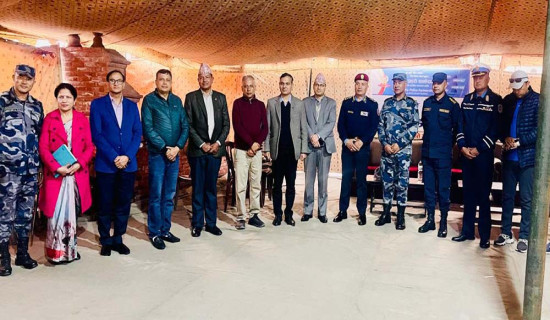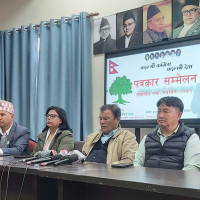- Sunday, 15 February 2026
Army prepares rescue plan for peacekeepers
By A Staff Reporter,Kathmandu, Oct. 24: Contingency plans and security measures are being prepared to rescue Nepali peacekeepers deployed in Syria and Lebanon if needed.
"Although our peace troops are currently on the safe side and position in Lebanon and Syria, they are not secure and the situation may escalate at any time," said Chief of the Army Staff (CoAS) Ashok Raj Sigdel at a meeting of the Ministry of Defence on Tuesday evening.
General Sigdel said that a contingency plan is being prepared to rescue Nepali peacekeepers stationed in Syria and Lebanon if the situation deteriorates further.
CoAS Sigdel said that as the conflict in Syria and Lebanon has escalated and Nepali peacekeepers are present in the regions, a contingency plan is being made in coordination with the Nepali Army and the Ministry of Defence for their emergency evacuation if required.
Currently, a war is going on between the militant group Hezbollah and Israel in Lebanon. Although Nepali peacekeepers deployed under the United Nations peacekeeping mission (UNIFIL) in Lebanon are in a slightly uncomfortable situation, they are safe, CoAS Sigdel said. There are currently 877 Nepali peacekeepers in Lebanon under the UNIFIL mission and 452 in Syria border point. Among them, only a few are in a relatively difficult situation.
“In terms of their safety, the area where they are stationed is a conflict zone, with gunfire happening around them. The security situation is a bit more challenging than usual, but even in this difficult situation, they are completely safe. They are sheltered in bunkers," he said.
He added, "In case a significant situation arises, the headquarters is preparing a plan for how to handle it.
In coordination with the Nepali Army and the Ministry of Defence and Mission Headquarters of the respective nation, we have devised a plan to bring the troops back to Nepal and transport them to safer locations if necessary. We are in direct contact with the Nepali troops stationed there, and the likelihood of them facing significant danger is very low."





-square-thumb.jpg)



-original-thumb.jpg)
-original-thumb.jpg)




